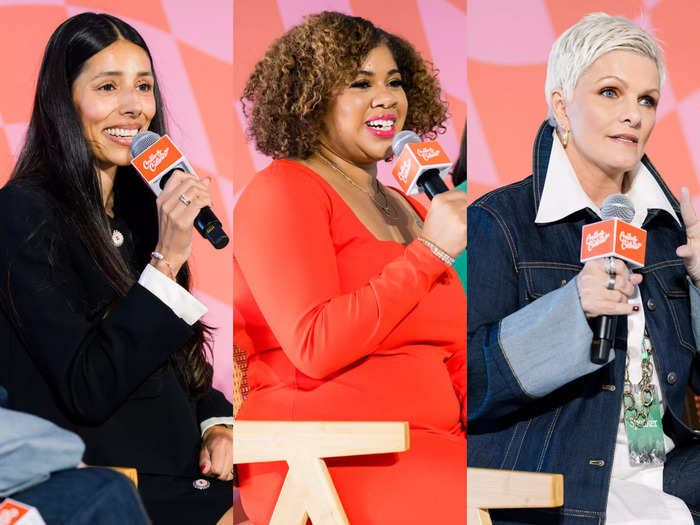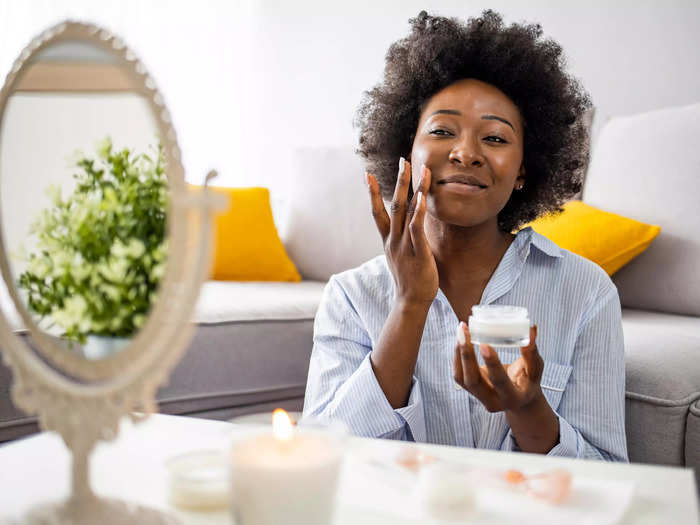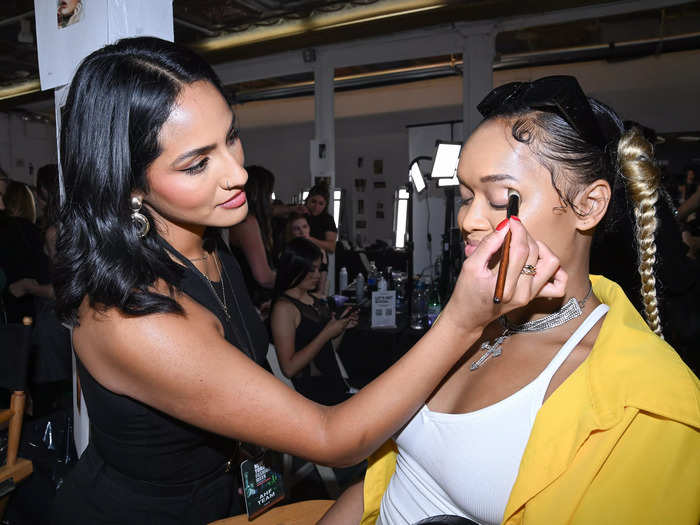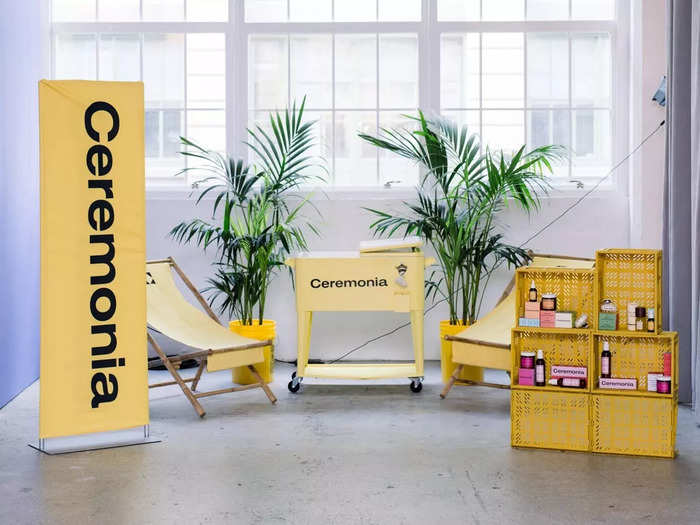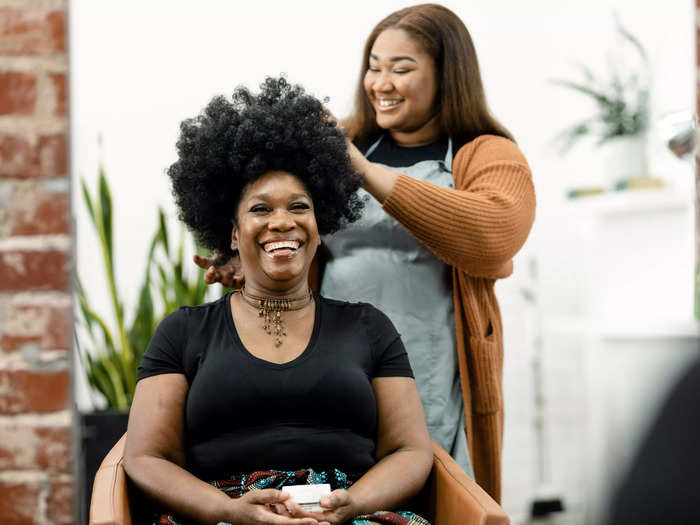One beauty founder told BI she thinks experiential beauty will be popular in 2025.Mark Gunter/Contributor/Getty Images for Art Hearts Fashion
- In 2023, the beauty industry's sales reached $446 billion, according to a recent report by McKinsey.
- As 2025 approaches, BI asked three beauty founders what trends will be popular in the new year.
The '90s had brown lipstick. The 2000s had chunky highlights. The 2010s had heavy contour.
Now, as the midway point of the 2020s approaches, we're wondering what beauty trends will define this decade for years to come.
But sometimes, the trends aren't as easy to spot as tweezed brows, cherry-red nails, or cerulean sweaters. Instead, they occur at the industry level, changing the way consumers think about their beauty routines, attitudes toward beauty, or even the ways they shop.
As the beauty retail market continues to expand globally — a September study published by McKinsey reported worldwide sales reached $446 billion last year, a number that is predicted to grow by 6% each year through 2028 — seeing trends through these broader lenses may be the key to pushing the industry to another level.
But what does that actually mean? Here's what three beauty founders are thinking about for the industry in 2025.
Three beauty founders shared what they expect to see in 2025.
Babba Rivera, Candace Mitchell, and Colleen Rothschild told BI what beauty industry trends they think will be big in 2025. Becki Smith/Smith House Photos
Business Insider spoke with beauty founders Babba Rivera, Candace Mitchell, and Colleen Rothschild at Create & Cultivate Offsite in New York in early October.
Rivera is the founder and CEO of Ceremonia, a hair-care brand rooted in her Latin heritage. Founded in October 2020, the brand became one of the first Latina-owned hair-care brands to be carried by Sephora in 2022, and in 2023, WWD reported that the company raised $10 million to support its rollout in more than 500 of the retailer's stores.
Mitchell is also in the hair-care industry as the founder and CEO of beauty-tech company Myavana. The company, which was founded in 2012 and is now reportedly valued at $50 million, uses an algorithm to create personalized product recommendations.
And, representing skincare, makeup, and hair care is Colleen Rothschild, who founded Colleen Rothschild Beauty in 2014.
Expect to see more of a "less is more" approach to skincare.
One beauty founder told BI that for skincare, she prefers a "less is more" approach. Dragana Gordic/Shutterstock
Rothschild told BI that while she loves following trends for other industries like fashion or home decor, skincare is something entirely different.
"We're talking about something that you should be consistent with, and consistency, in my opinion, gains confidence," Rothschild said.
So, while it could seem tempting to pile on the products before bed like the "morning shed" creators on TikTok, it may be better to stick with the basics.
"For me, it's about tried and true ingredients," Rothschild said, citing hyaluronic acid, glycolic acid, mandelic acid, and vitamin E, adding that trying too many different products can irritate the skin.
"So we try to keep it with this less is more approach, maximum ingredients, but minimal effort," she said. "I know we tend to want to lean into trends, but for skincare, I think consistency with tried and true ingredients that perform is the best thing."
Consumers can also expect to see more personalized beauty options.
One beauty founder told BI she thinks personalized beauty will trend in 2025. Mark Gunter/Contributor/Getty Images for Art Hearts Fashion
While Mitchell's company, Myavana, is focused on personalizing the hair-care industry, she told BI, "The cool thing is this personalization can spread across every category, so skincare, makeup, fashion, even health."
Custom skincare brand Curology, for example, was founded in 2014 and became profitable in 2022, with revenue surpassing $200 million, Retail Dive reported in January, citing an email from CEO Heather Wallace.
"So, what I'm pushing for now, especially with retailers, is to personalize the retail experience," Mitchell said.
Myavana recently launched on Ulta. The tool can be found under the retailer's "Discover" and "Virtual Tools" tabs as the "Hair Analysis" feature.
The application uses a photo of your hair and up to two of your main concerns — answers include "Shine," "Thinning," "Frizz Free," "Heat Protection," and more — to provide your hair type match. Based on the results, the program offers tips and product recommendations for shampoos, conditioners, oils and serums, and masks.
"I think that we're going to see a big shift from a one-size-fits-all approach to a more personalized experience driven through technology," Mitchell said.
Culture-forward beauty will also continue to grow.
Rivera told BI she's a "huge believer" in "cultural-forward beauty." Becki Smith/Smith House Photos
"It's so interesting how in the beauty space, for some reason, the only culture we've been exposed to has been French culture," Rivera told BI. "It's been really dominating the beauty category globally on the more high-end prestige level, and it's interesting because when you look at the consumer demographic today, the Hispanic audience is huge."
In 2023, the Pew Research Center reported that Latinos make up about 19% of the US population, and the US Census Bureau projects that the Latino population will reach 26.9% in fewer than 40 years.
"Yet, we have very little to no representation on the beauty shelves," Rivera said.
But brands from different cultures are rising to prominence, she said, citing the growth of Korean beauty and her love of the Japanese beauty and skincare brand Tatcha.
"I think Tatcha is amazing; it's like Japanese rituals packed into this beautiful luxury brand," she said.
Similarly, she said the ingredients and rituals she grew up with can benefit anyone. "Our brand is not exclusively for Hispanics, just like L'Occitane isn't only for French people, right?" she said.
So, in 2025, Rivera said she hopes to see "a celebration of culture" that's more than just a trend and gives credit where credit is due.
"I love the return of the slick-back look. To me, that's a Latina signature. I think we invented that look," Rivera said. "So, I really think it's just more honoring of a culturally loaded beauty."
Beauty is becoming more experiential, with messaging that promotes embracing one's authentic self and supporting inner beauty.
One beauty founder said there should be a movement toward supporting inner beauty. Rawpixel.com/Shutterstock
"So think about right now, beauty is all cosmetics; it's all about your physical appearance. But what about inner beauty?" Mitchell said.
"Because when you think about it, the things that drive the emotions of how we should look, how we want to feel, it's more so related to our self-esteem, our well-being, our sense of confidence, our identity. And I really believe that there should be a movement toward supporting the inner beauty of consumers," she added, citing the impacts of social media.
In 2022, Business Insider reported that social media can negatively affect users' body image because of constant comparisons.
Neha Chaudhary, MD, a child and adolescent psychiatrist at Massachusetts General Hospital and Harvard Medical School, told BI, "People end up creating unrealistic ideals for themselves based on what they see and feel distressed when they aren't able to meet those ideas or self-expectations."
With that, Mitchell said she thinks beauty is moving to become more experiential, with messaging promoting embracing one's authentic self.
"What if we could learn how to do our makeup in an experiential format?" she asked. Or, what if we could look forward to hair wash days by including aroma therapy, music, or cool content involved in the experience?
"It is time to innovate and elevate the beauty industry," Mitchell said.

